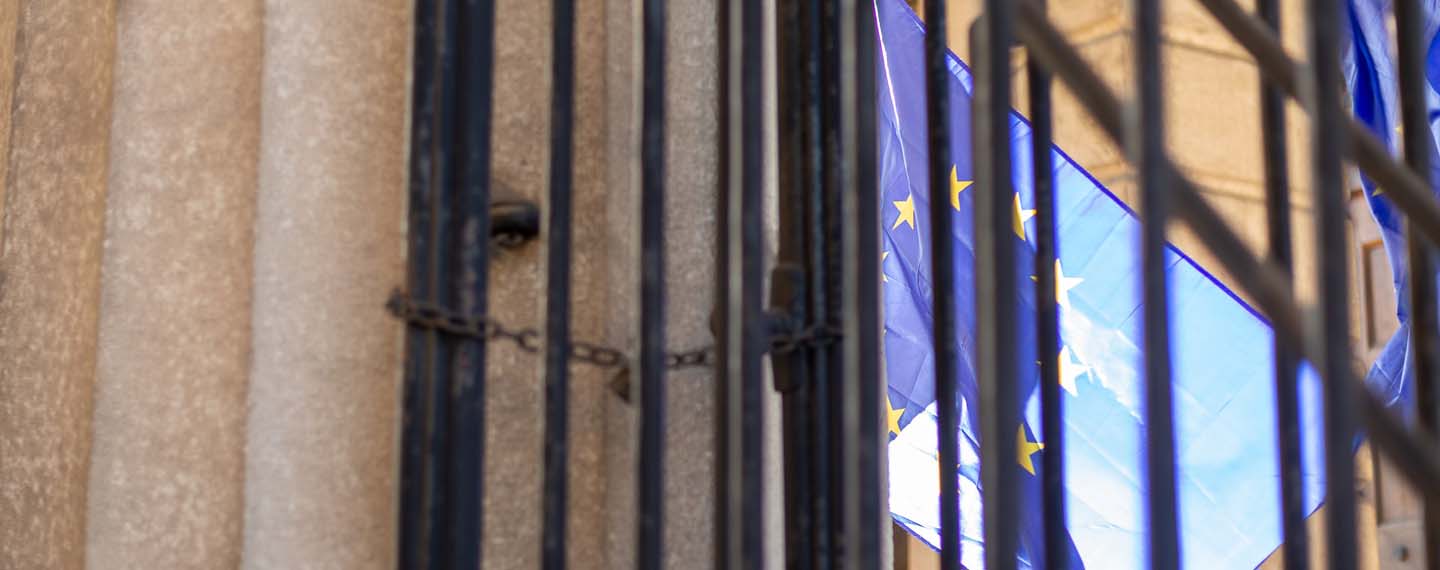It is common these days to read that the Russian invasion of Ukraine is the single greatest threat to the international liberal order. Many analysts even consider that the war is a watershed in international relations. This is partly true. For the first time since World War II, a great power is using brute force –ie, its entire war machine– to wrest territory from a smaller and weaker neighbour. It is also true that we have never been so close to a possible nuclear conflict since the Cuban missile crisis of 1962, 60 years ago. We are therefore facing a historic moment of enormous significance, the medium- and long-term effects of which have yet to be understood.
(…) this war in Ukraine can also be seen as a continuation of a structural trend. The international liberal order has been crumbling for 20 years.
But this war in Ukraine can also be seen as a continuation of a structural trend. The international liberal order has been crumbling for 20 years. On the economic level, the beginning of the collapse could be placed in 2001 when the ‘master’, Alan Greenspan, governor of the FED and foremost defender of laissez faire, lowered interest rates to 1%, thus intervening massively, with the public wand, in the market’s workings, killing the neoliberal project in its purest conception. From a political point of view, 2003 saw the disaster of the Iraq War (in violation of international law and with an unprecedented public outcry, with millions protesting in the streets of Madrid, London and Rome) and the Abu Ghraib and Guantanamo scandals. And this was only the beginning.
Then came the global financial crisis of 2008, which discredited Western capitalism and its most emblematic centres –Wall Street and the City of London–, and the euro crisis, which showed that a currency with a single market but no political union to support it is an oxymoron. The Doha Round of the World Trade Organisation, which was already moribund, finally collapsed during the period, cementing the idea that the US and Europe, and their allies in the OECD such as Japan and South Korea, were no longer capable of imposing their liberal agenda. New emerging powers such as China, India and Brazil opposed the liberalisation of services if the Western powers did not eliminate their domestic farm subsidies, and –as they did not want to do so– trade multilateralism and its liberal agenda stagnated at the global level (although there was progress at the regional level).
One of these advances was going to be the free trade agreement (TTIP) between the US and the EU, but the anger over free trade in Europe and the US was already substantial, and between Brexit and Trump the entire construct fell apart. Moreover, Trump began a protectionist and unilateralist policy of open confrontation with China (and partly against the EU), which –even before the COVID– made the world neither very orderly, nor liberal or international because there was already talk of a new Cold War between the US and China. Seen in this light, Russia’s invasion of Ukraine is yet another chapter in the collapse of the international order. A collapse that is a product of the structural decline of the US as a hegemonic power.
The cost of the wars in Iraq and Afghanistan turned most Americans against military intervention in other parts of the world, allowing Russia and China the opportunity to increase their influence in their respective regions. The war in Ukraine is therefore a consequence of Putin’s imperialist zeal, which cannot accept that Ukraine should fall under the orbit of influence of the EU and the US, but also of the failure of the US (and NATO as a whole) to deter the Russian attack. Moreover, in retrospect, Biden openly stating that the US would not send troops to defend Ukraine may have been interpreted by Putin as a sign of weakness that encouraged him to order the invasion. Perhaps he even thought that the US and EU were bluffing about imposing economic sanctions, which has not been the case.
The sanctions have been forceful, no doubt, but they have also confirmed that the international liberal order (if it ever really existed) is now history. From the White House, and some European capitals, it is insisted that the war shows that we are facing a competition, or even a conflict, between democracies on the one hand and autocracies on the other. There is also talk of a battle between the Western bloc and the bloc made up of Russia and China because the latter offers Putin at least moral support. But this binary discourse is false and counterproductive. First, rather than the West, one could speak of a ‘trans’ alliance. Transatlantic because the war has once again united the US and the EU, but also trans-Pacific, because Japan and South Korea, and Australia and New Zealand, have also applied sanctions against Russia. It is not just the West.
The EU has to defend its values and interests, but not with a negative agenda (of reproaching others for their actions), much less by clinging to an outdated liberal international order.
But there is also another bloc, another large part of the world, which has not positioned itself in the face of the conflict, and which rejects the binary discourse of democracies vs autocracies. Here we find all the countries of Latin America, Africa and Asia, including powers that are in the G20 such as Brazil, South Africa and Indonesia, which, at this time and for a variety of reasons, do not see the need to take a clear position in the conflict, and prefer to remain non-aligned. Russia, whether we like it or not, remains a major power in the world. Many diplomats from these countries, moreover, denounce the double standards and hypocrisy of the Western powers. When the US illegally invaded Iraq, the US was not sanctioned. When the war in Syria generated millions of refugees, Europe did not open its arms as it is doing with the Ukrainians. The US and EU constantly denounce China’s human rights abuses in Xinjiang and Tibet but have no problem doing business with the Gulf countries, which are repressive absolutist monarchies.
Furthermore, many capitals of the ‘Global South’ think that the sanctions on Russia are what is pushing up the prices of wheat, maize and many other commodities, creating internal problems for them. This, of course, is only a half-truth. The rise in wheat prices is mostly because Russia has invaded Ukraine and will not let it export its commodities. But –in the current global conversation– the West is seen as the one ‘imposing sanctions’ and berating others for not putting them in place (although what is really being asked is not to help Putin). Amidst these diplomatic tensions is also a certain undercurrent of anti-colonialism and schadenfreude. The feeling in part of the Global South is that this is another European war and that it should be the Europeans, with the help of their US partners, who must resolve it, and the sooner the better.
In such a context, few leaders and diplomats in the Global South share this binary view of democracies vs autocracies (because many are not democracies) and consequently will continue to dissociate themselves from such a discursive framework. Most of them, moreover, want good relations with the US and China, and see an escalation of tension between the two as negative for their interests (although the geopolitical rivalry between them ensures that they can hedge, and play both sides). Their attitude is much more pragmatic than ideological. In the face of this, the EU has to be smart. Buying into the binary vision of the Biden Administration may be a mistake (and that is quite clear to Paris). The EU has to defend its values and interests, but not with a negative agenda (of reproaching others for their actions), much less by clinging to an outdated liberal international order. If it does that, it runs the risk of being seen by the rest of the world as desperate to maintain a dying status quo.
The agenda must be much more positive and proactive. The Food and Agricultural Resilience Mission (FARM) is a good start, but it needs to be developed further. In general, a new agenda is needed for the globalised world in which we live, but that agenda needs to be based on new recipes in line with the new Zeitgeist. For that, we cannot impose our own model on others when it is highly questioned even in our own societies. First, we must improve the internal situation in our own countries to then be able to create a liberal multilateralism. Except that multilateralism must be more social (that is what our societies are asking for) and greener (humanity depends on it), and it cannot be based on ‘us against them’ because that will create more confrontation and less understanding, which is just what is to be avoided.
(*) The original version of this article was published in Spanish on 29 May 2022 in El Confidencial.
Image: European Union flag at a rally of support for Ukraine. Photo: Tetiana SHYSHKINA (@shyshkina).



